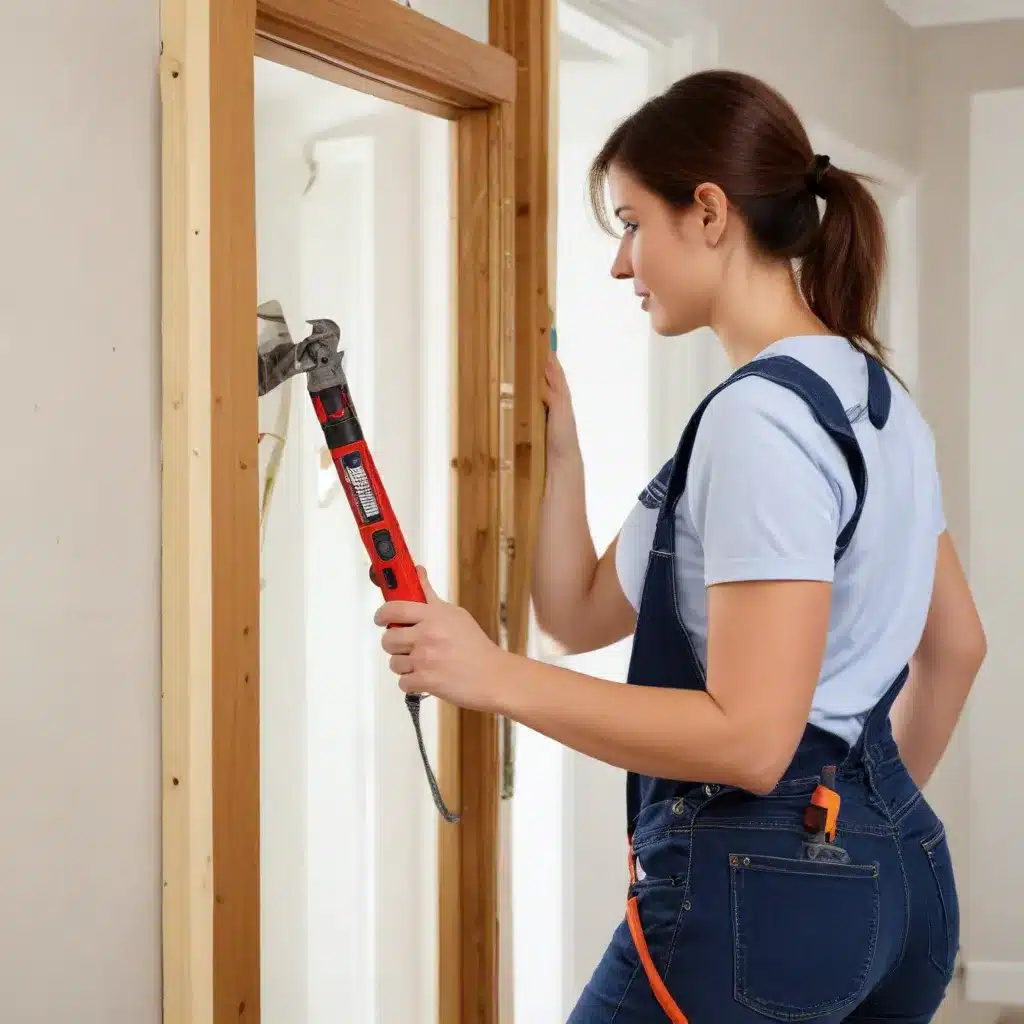As an experienced home improvement consultant, I’ve seen firsthand the enthusiasm and satisfaction that DIY projects can bring to homeowners. Tackling renovations yourself can be a fantastic way to save money, unleash your creativity, and learn new skills. However, it’s also important to recognize the limits of your abilities and know when to call in the professionals.
Recognizing DIY Limitations
Assessing Your Skills
Not all of us are born handymen (or women). It’s crucial to take an honest look at your existing skills and experience before diving into a renovation project. Tasks like electrical work, plumbing, and drywall installation require specialized knowledge and expertise that can’t be easily picked up through a quick YouTube tutorial. Attempting these types of jobs without the proper training can lead to costly mistakes and safety hazards.
Evaluating Project Complexity
The scope and complexity of a home improvement project can also be a reliable indicator of whether DIY is the best approach. Simple tasks like painting, installing shelves, or replacing light fixtures may be well within your capabilities. However, tackling a full kitchen remodel, finishing a basement, or rewiring an entire home is likely beyond the skillset of most homeowners.
Identifying Potential Risks
Whenever you take on a DIY project, you need to be mindful of the potential risks involved. Improper installation, use of the wrong materials, or failure to follow safety protocols can lead to damage to your home, personal injury, or even code violations. Underestimating the time and effort required for a project can also result in unfinished work, missed deadlines, and added stress.
Knowing When to Seek Professional Assistance
Complex Repairs and Renovations
For complex home improvement tasks, such as structural modifications, major plumbing or electrical work, and large-scale renovations, it’s generally best to enlist the help of licensed and experienced professionals. These experts have the necessary skills, tools, and knowledge to ensure the job is done correctly and up to code. Attempting these types of projects on your own can lead to costly mistakes and safety hazards.
Safety-Critical Projects
When it comes to anything involving safety-critical systems, like gas lines, load-bearing walls, or HVAC installations, it’s essential to have a professional handle the work. Attempting these tasks without the proper training and expertise can put you and your family at risk of serious injury or even catastrophic damage to your home.
Specialized Expertise Requirements
Some home improvement projects require specialized knowledge and skills that the average homeowner simply doesn’t possess. For example, tasks like installing solar panels, repairing historic architectural features, or implementing advanced energy-efficient solutions often necessitate the expertise of specialized contractors or tradespeople.
Cost-Benefit Analysis of DIY vs. Professional Service
Estimating DIY Expenses
While DIY projects can seem like a cost-effective option, it’s important to factor in the potential for unexpected expenses. You may need to purchase specialized tools or equipment, and any mistakes made during the project could lead to additional repair costs down the line. Additionally, your time and effort should be considered as part of the overall investment.
Comparing Professional Rates
Hiring a professional handyman, contractor, or tradespeople does come with a price tag. However, their expertise and experience can often save you money in the long run by ensuring the job is done correctly the first time, minimizing the risk of costly mistakes or future repairs.
Considering Long-Term Implications
When weighing the decision to DIY or hire a professional, it’s crucial to consider the long-term implications. A poorly executed DIY project may result in reduced energy efficiency, compromised safety, or even a devaluation of your home. Conversely, investing in high-quality professional work can increase the overall value and functionality of your property.
Prioritizing Safety and Quality
Avoiding DIY Hazards
DIY projects can expose you to a variety of hazards, from electric shocks and falls to exposure to harmful materials like asbestos or lead-based paint. By opting for professional assistance, you can ensure that the work is completed safely and in compliance with local building codes and safety regulations.
Ensuring Proper Installations
Proper installation is paramount for the long-term performance and durability of your home improvements. Experienced contractors have the knowledge and expertise to ensure that every component is installed correctly, from load-bearing structures to weatherproofing systems. This attention to detail can prevent future issues and costly repairs.
Maintaining Compliance and Warranties
Many home improvement projects, such as electrical or plumbing work, require permits and inspections to ensure compliance with local building codes. Hiring a licensed and insured professional can help you navigate these requirements and maintain the validity of manufacturer warranties on installed products.
At the end of the day, the decision to tackle a home improvement project yourself or call in the professionals is a highly personal one, based on your individual skills, the scope of the work, and your overall goals. By carefully evaluating the complexity of the task, the potential risks involved, and the long-term implications, you can make an informed choice that aligns with your budget, timeline, and desired outcomes.
Remember, there’s no shame in acknowledging your DIY limits and seeking the expertise of a skilled professional. In fact, it’s often the wisest course of action to ensure the safety, quality, and longevity of your home improvement investments. For more information and inspiration, be sure to visit Reluctant Renovator – your go-to resource for all things home improvement.




